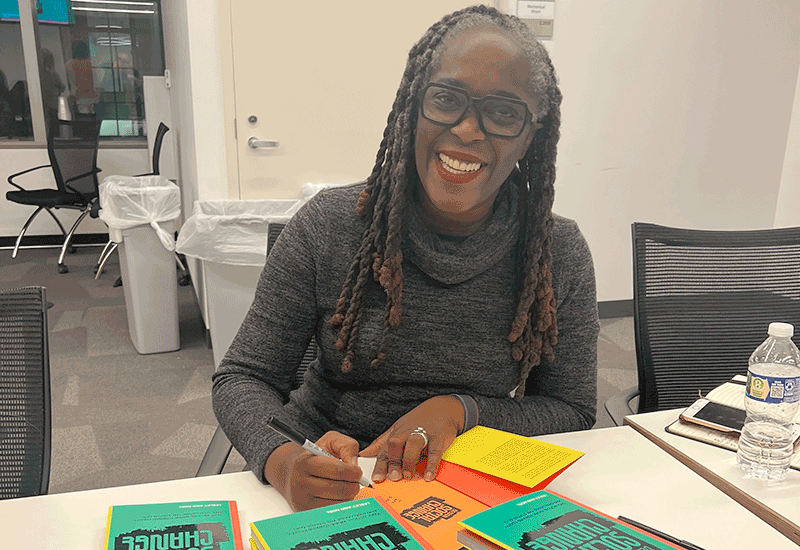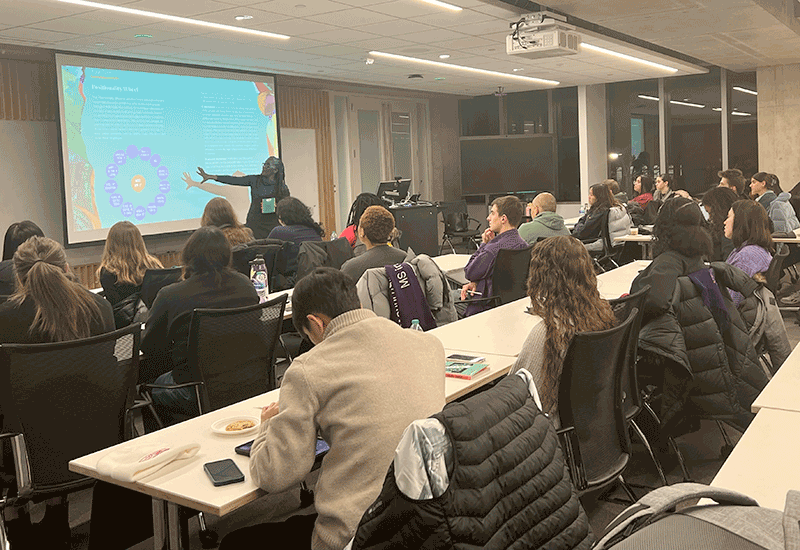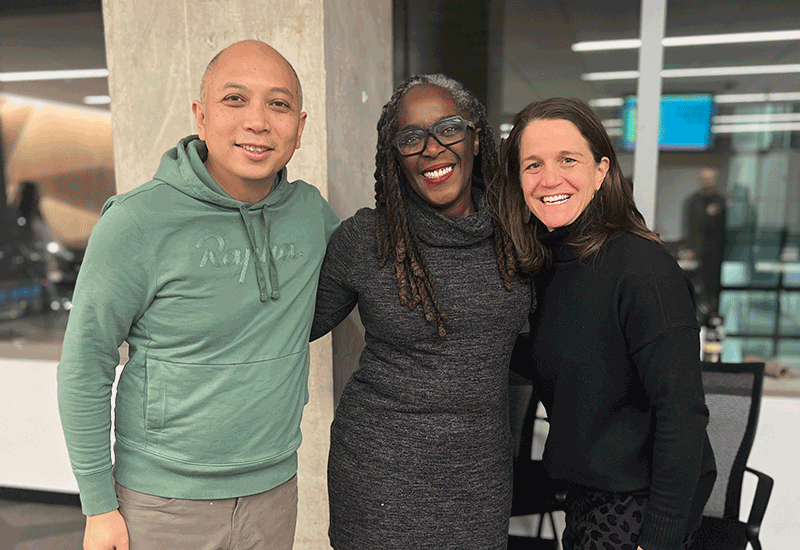Lesley-Ann Noel Speaks on How to Design for Social Change
Author and educator Lesley-Ann Noel breaks down her book, "Design Social Change," for Northwestern students.

Packed with sage advice on how to seek justice through design strategies, Lesley-Ann Noel’s book, Design Social Change, aims to give designers the tools they need to create lasting impact in the world.
Noel spoke to Northwestern students on January 17 at the Ford Motor Company Engineering Design Center, introducing her book and the strategies for change held within it to an eager audience. The event was co-hosted by the Segal Design Institute and Center for Human-Computer Interaction and Design.
Noel’s book covers three essential strategies for effective design, the first being to build critical awareness. Noel described this as developing a better understanding of the world and one’s identity to optimize the design process.
The second strategy Noel covered was deepening emotional intelligence. She noted that designers tend to work around pain, which can lead them to neglect joy in their designs.
"It is easy to design around pain, so let's try to balance things out. Let's try to understand the things that bring them joy and bring that into the design,” she said.
Finally, Noel touched on how designers must learn how to envision equitable futures. This strategy helps them tailor their approach to design based on their lived experiences and the experiences of others.
“We have to be able to see the oppressions in the world, so we as designers are not continuing these oppressions, and so we can also address these oppressions," Noel said. “We can take action against it.”

Design Social Change is one of 10 design guidebooks put out by Stanford University’s d.School, where Noel was previously an Ocean Design Teaching Fellow. While Noel was at Stanford, the school asked if there was a book concept she wanted to write.
“I'm going to do a book about design and cooking and social justice," she remembered thinking. “I found that when people talked about design thinking, they would describe it in a way that just seemed so regimented—and it made me feel they were following a recipe.”
Noel went on to discuss how these “recipes” may differ from person to person, as do social justice issues. But, she said, with an understanding of the “ingredients” of design, one can curate a recipe to enact change.
This concept shaped Noel’s first proposal for her book.
“The book had all these threads. It was a cookbook, it was about critical utopian action research, and it was about making change,” she said. “It was about design for social innovation.”
Her proposal evolved from there, developing into the book it became. One of Noel’s concerns during the writing process was the audience; she wanted Design Social Change to be widely accessible. To achieve this, she incorporated paintings from Trinidadian artist Che Lovelace as illustrations and carefully edited the text, making it less academic and more constructive.

Additionally, Noel wanted to reach those who felt powerless about their positionality and possible impact through design. She emphasized that by integrating critical awareness, emotional intelligence, and a focus on equitable futures, individuals can assert their agency in shaping a more inclusive and just world.
“I wanted them to understand they probably have more power and agency than they realize,” she said. “I'm also talking to people who have a little bit more power so that they understand how to make space for other people in the work that they're doing—so they can see where change is needed.”
Noel is a designer, researcher, educator, author of "Design Social Change," and co-editor of “The Black Experience in Design.” Utilizing an emancipatory and critical approach, she focuses on equity and social justice in her design. Her research interests are centered on perspectives that may be traditionally overlooked in research, community-led research, and design-based learning and thinking. She is an assistant professor of media arts, design, and technology at North Carolina State University. Links to purchase her book "Design Social Change" are available on the d.School website.
